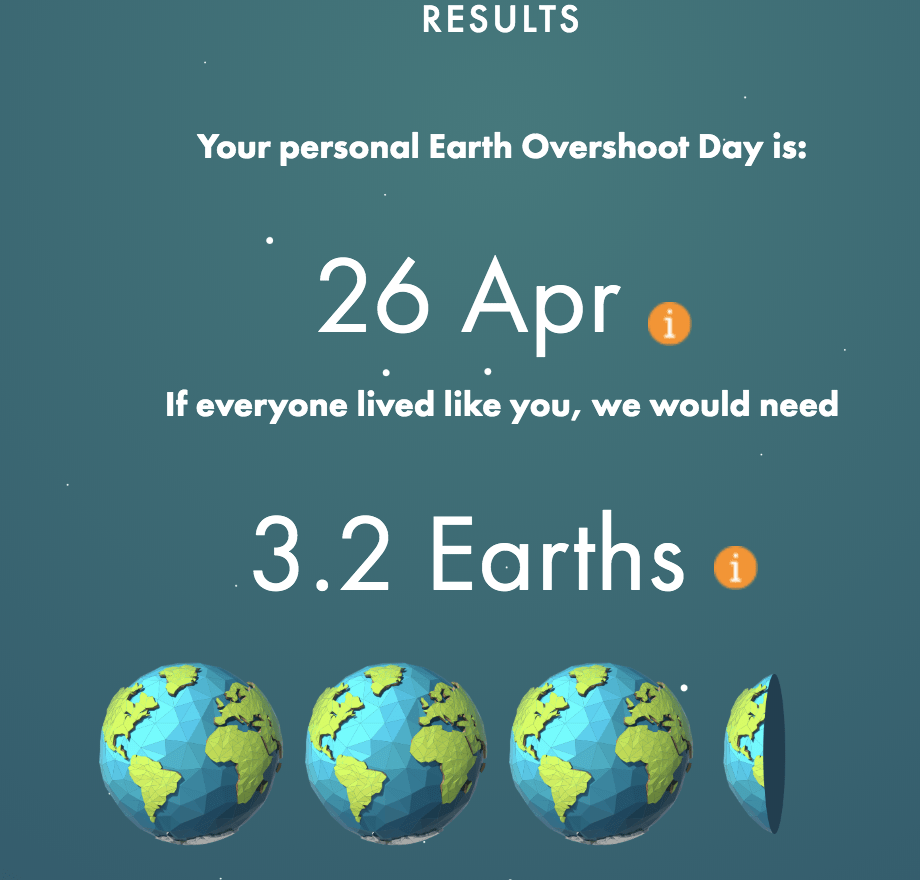Science Sustainability Project: Individual Report
Sustainability is the use of global resources at a rate that allows natural regeneration and minimises damage to the environment. Simply put, sustainability is the well being for all within the means of nature. The balance of economic, environmental and social development is called sustainable development and it is very crucial to our world. Sustainable development encourages us to conserve and enhance our resources, by gradually changing the ways in which we develop and use technologies. At the same time, countries must be allowed to meet their basic needs of food, energy, water, equality and stable employment. By changing a few aspects of our lives, we can grow sustainably and be able to live in a progressive society with good environmental and economic prospects.
An ecological footprint is another important aspect of sustainability. It is the amount of our environment (water and land that can support life) necessary to produce the goods and services needed to support our human lifestyles. Each of us have our own ecological footprint and our own impact on the earth. The ways we live like what we eat, what we shop and how we travel affects our world and sustainability, especially if we are wasteful. Ecological footprint is calculated in global hectares (gha) which is a biologically productive hectare with world average productivity and our planet currently has 1.7 gha available to each human.
I took a quiz to calculate my ecological footprint and received the above estimation of my ecological footprint as 5.4 gha – 3.2 times the amount I should be consuming. According to the quiz, my main areas for improvement are food and mobility. The rest of this reflection aims to explore what impacts I am having on the earth and how I can change my life to be more sustainable.
My food consumption is a main area where I can improve my ecological footprint. A lot of the food I buy is imported as I am a vegetarian and the locally produced food in Singapore is usually seafood and meat. That being said, my family has not explored various local markets to see if there is something that would suit our diet. Additionally, we usually cook Indian meals in which the ingredients aren’t available in local supermarkets, hence we buy from the Indian grocers that offer imported food. Furthermore, we do not live near local markets and organic food is quite expensive – therefore imported food is the more convenient option for our lifestyle. However, by buying imported food, my family adds to global warming as perishable food is usually imported by planes which release harmful emissions directly into the atmosphere, enhancing the greenhouse effect. Imported food also requires more packaging and almost 20% of plastic in landfills comes from food and drink packaging. By buying more hard to recycle materials, like plastic, I support the increase of toxic materials in landfills and harm natural habitats. Furthermore, imported food means that local farmers lose their jobs as they are not able to compete with international markets. Additionally, imported food has an adverse effect on health as they often have harmful chemicals added and GMO products to help them be better tasting and preserved.
To counteract the effects of buying imported food I can – shop locally in farmers markets and local markets to support local products and farmers, eat foods that are in season to not need to import others, buy in bulk and find out how my food is sourced to avoid food transported by air travel. I could also start home gardening to make some of our own food instead of buying. Although all these options are viable, the most suitable change I can make in my lifestyle is buying from organic stores. I did some research and found an organic and vegetarian supermarket close to my house which would suit our dietary requirements. This change is the most quick and effective to reduce the negative impacts of importing food while also consuming healthy sustainable food. (refer here)
Transport is another aspect of my life that is unsustainable according to this calculator. In Singapore, I use the school bus for my morning commute and public transport in the evening. My usual method of transport is the MRT. I only take flights back to India on the large vacations, however, my parents travel by air often. Any form of transportation that uses fossil fuels contributes to harsh environmental damage and planes especially release their greenhouse gases directly into the higher regions of the atmosphere where they do the worst of their damage. Air pollution, global warming and my carbon footprint all increase as a result of travel and transportation.
My family should change how we travel by air. We could be more aware and use sustainable airlines (Delta, Singapore Airlines, Air NewZealand) who fund back some money into carbon neutralisation or sustainability projects, take non-stop flights to reduce pollution in layover countries, and try to travel locally and not with mass tourism (cruise, hotel chains) as it is much more polluting and comparatively worse for the environment. I think all these suggestions are good options for my family to consider as it is comparatively easy to facilitate and the issue of air travel is quite critical to the environment.
The one main thing I would change in my life out of all these options is travelling locally. This would mean staying in local places, doing local activities, eating local food and meeting local people. Not only would this give you richer understanding of local cultures when you travel it is also more sustainable because it supports more local businesses, you eat more local organic food, unlike travelling on a large scale it does not support the overconsumption of resources and protects the environment. In the future I would like to experience the world by travelling and hence, being a sustainable traveller is the one permanent change I would make in life.

